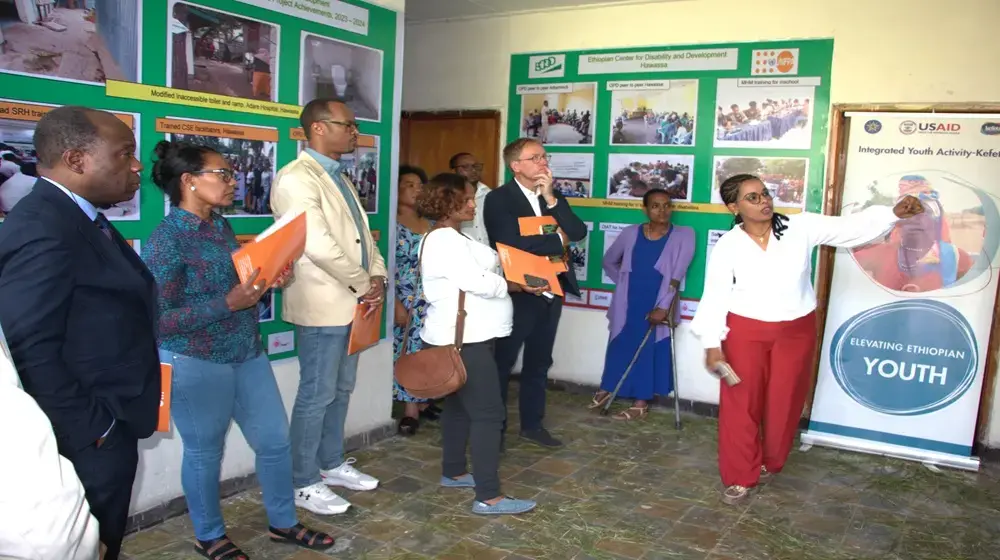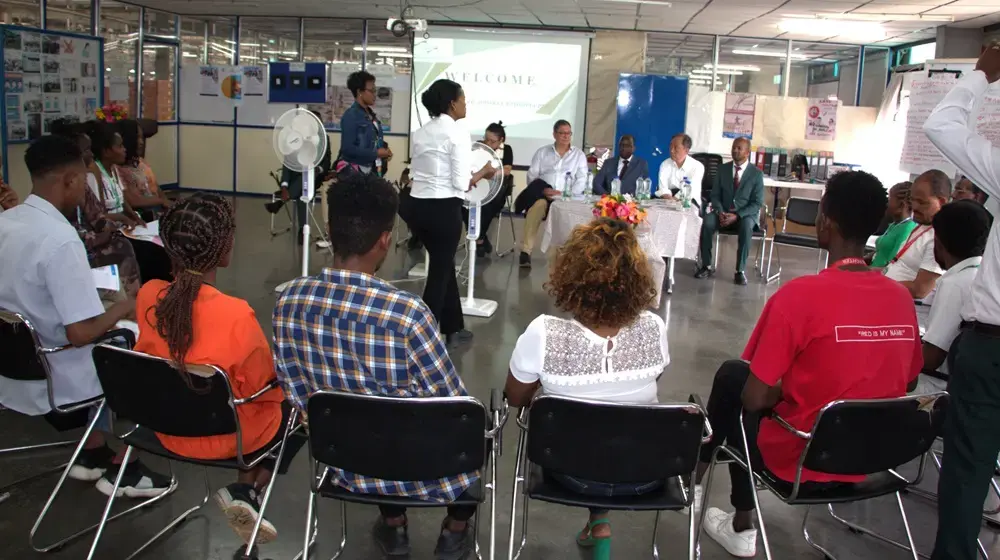UNFPA today handed-over two ambulances to the Gedeo and West Guji Zones of the Southern Nations, Nationalities and Peoples and Oromia Regions respectively. The ambulances were purchased with the generous funding of the Korea International Cooperation Agency (KOICA) as part of the five-year programme titled Integrated Programme on Family planning and Sexual and Reproductive Health among Adolescents and Youth (2019-2023). Emergency Reproductive Health kits were also distributed during the hand-over ceremony.
The five-year programme which is being implemented with a total budget of close to USD 3.5 million is complementing efforts at strengthening the capacity of adolescents and young people to make informed decisions on their sexual and reproductive health and rights, especially on family planning.
The programme is striving to empower adolescents and youth by making choices and services available as well as developing the capacity of healthcare providers and institutions to ensure informed choices. It is also expected to bolster efforts at strengthening key social behaviour change communication platforms to enhance service seeking behaviours.
The KOICA funded programme is being supported by UNFPA in selected districts in the West Guji Zone (Bule Hora, Gelana and Kercha) and Gedeo Zone (Dilla, Gedeb and Yirgacheffe) to ensure that comprehensive adolescent-friendly services are included in humanitarian response. The conflicts in the two zones in recent years resulted in hundreds of thousands of displaced persons increasing the vulnerability of adolescents and youth to HIV, sexually transmitted infections and other sexual & reproductive health problems, and sexual and gender-based violence.
Out of the 100 thousand unmarried and married adolescents and youth targeted by the programme, more than 22 thousand have received training on peer education and peace building in the past one year and half since the programme started. A rise has been seen in the demand for and use of sexual and reproductive health services among adolescents and youth.
The existing health system and services in the two zones have been seriously weakened by the situation impacting access to sexual and reproductive health information, counselling and services. The ambulances that were handed over today are expected to strengthen the referral linkages in addressing obstetric complications and other critical cases thereby enhancing the efforts at promoting safe delivery and ending preventable maternal deaths.




